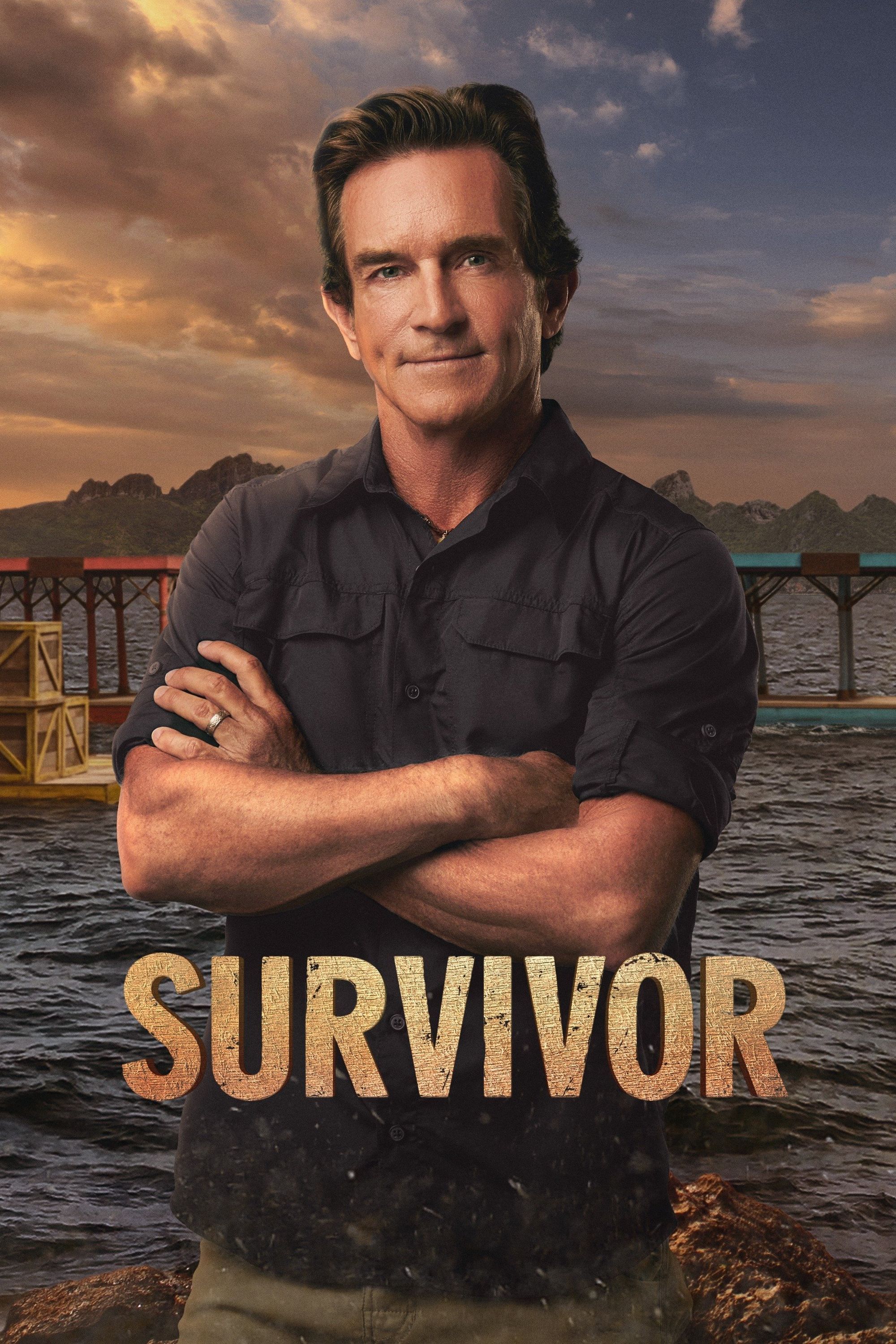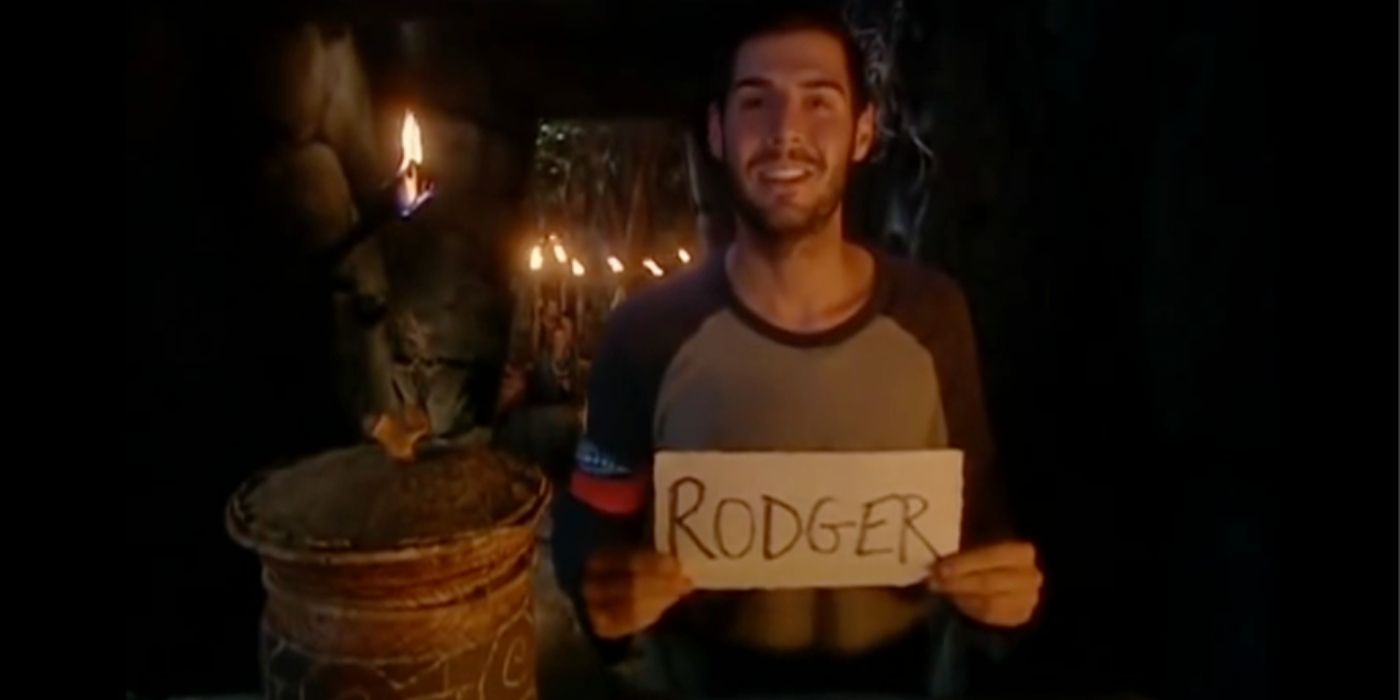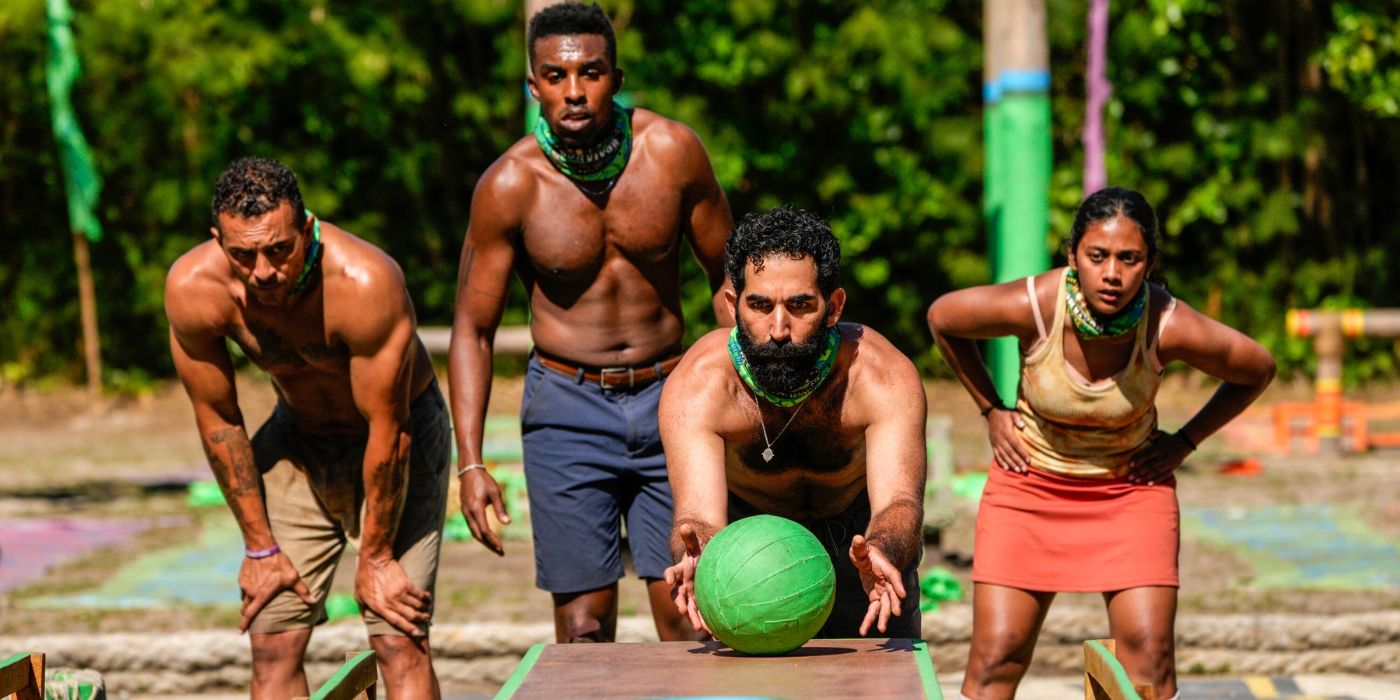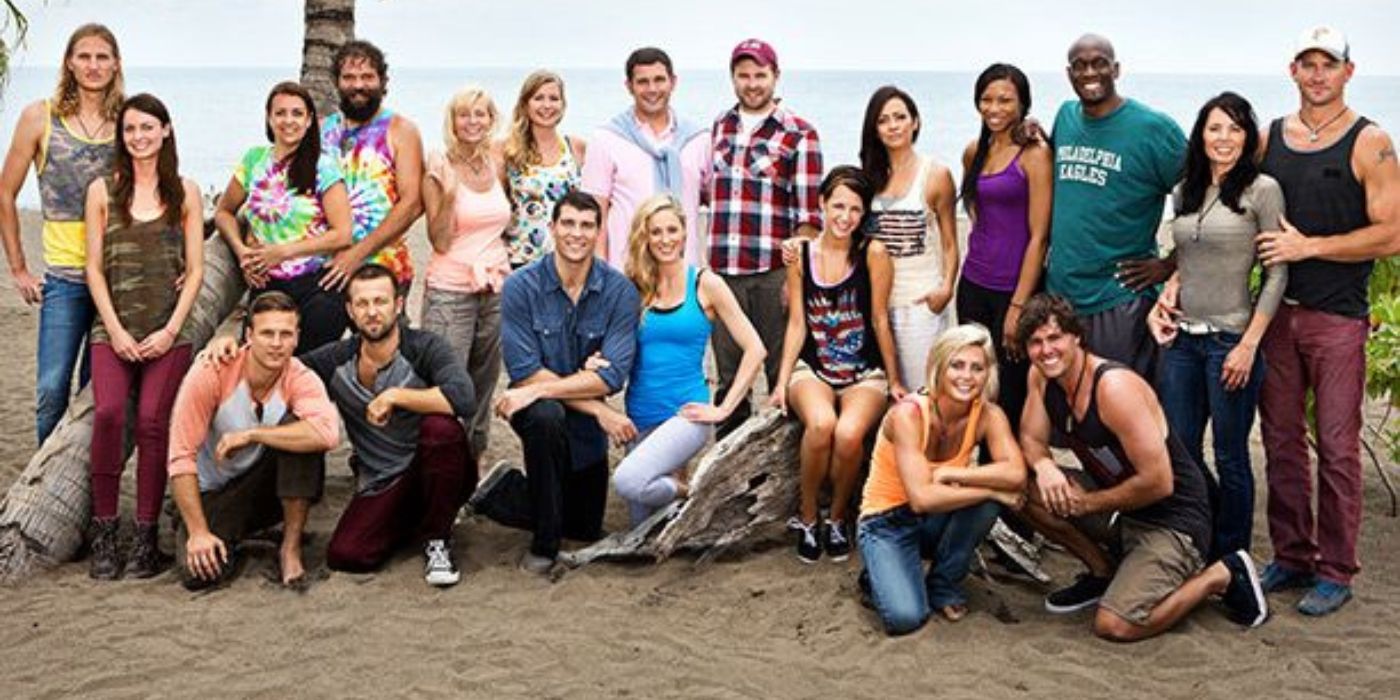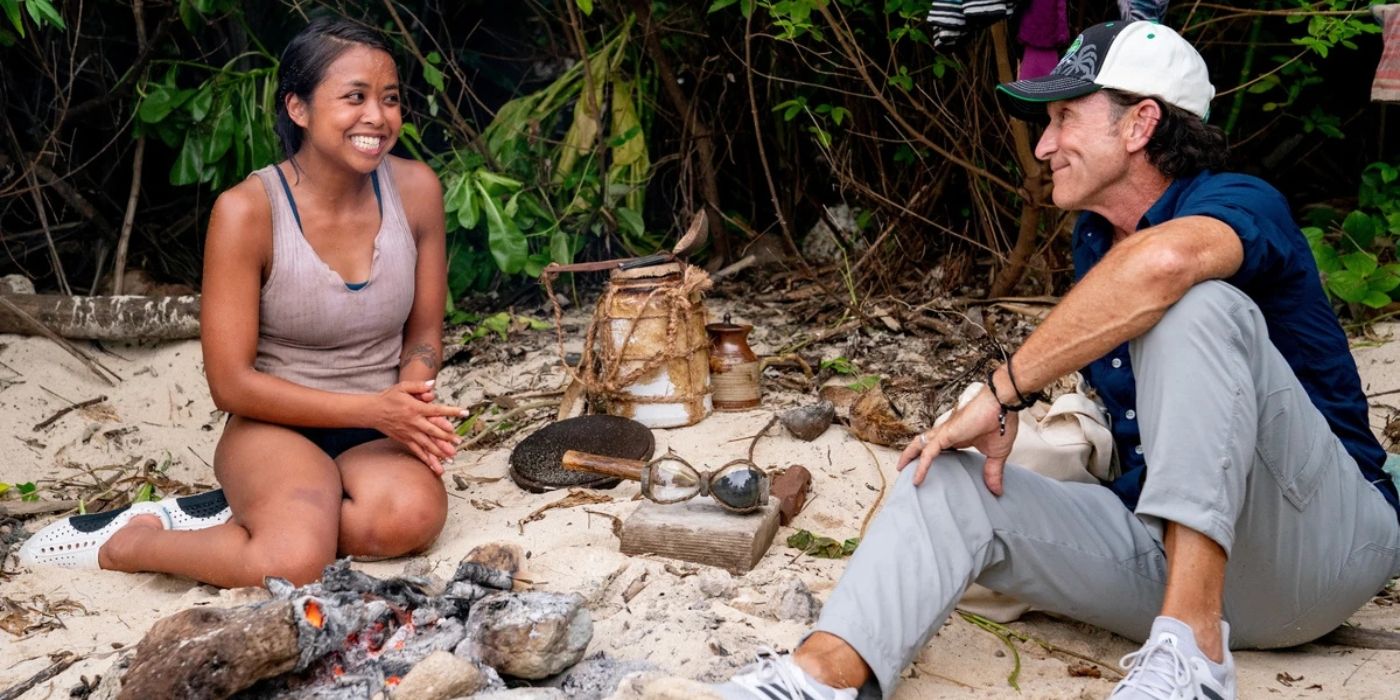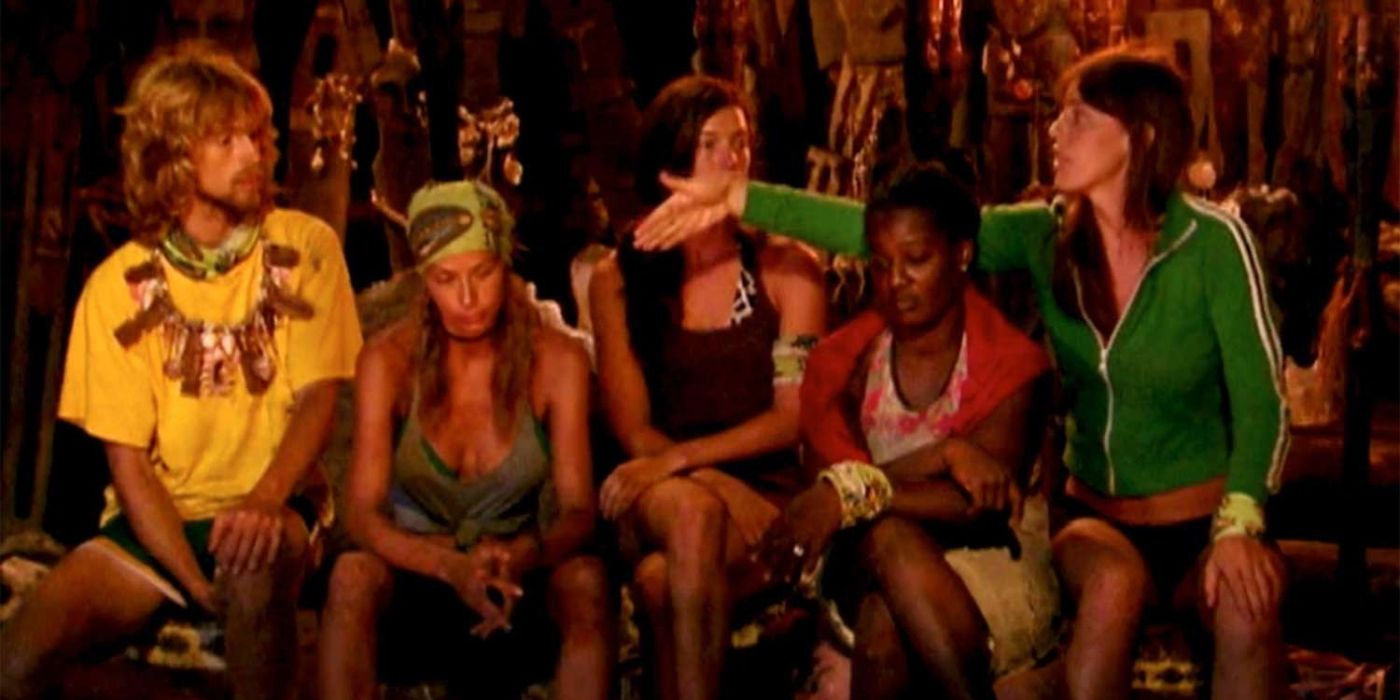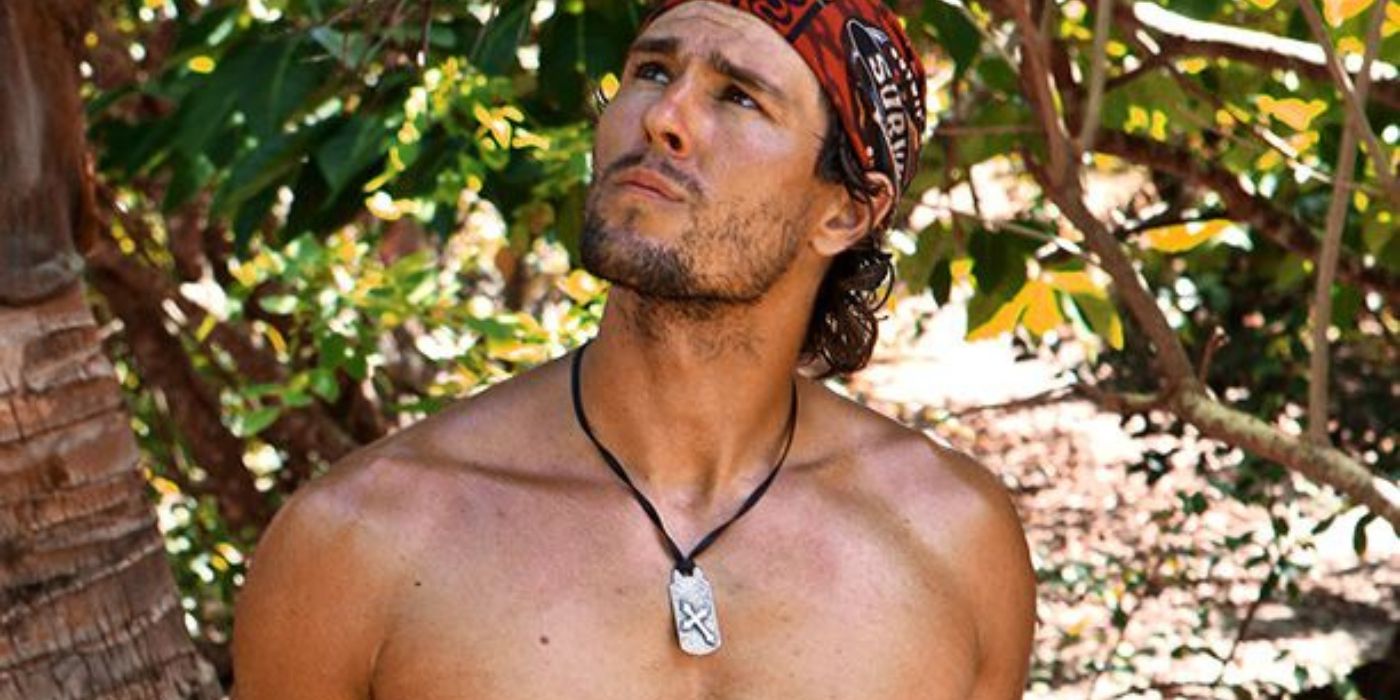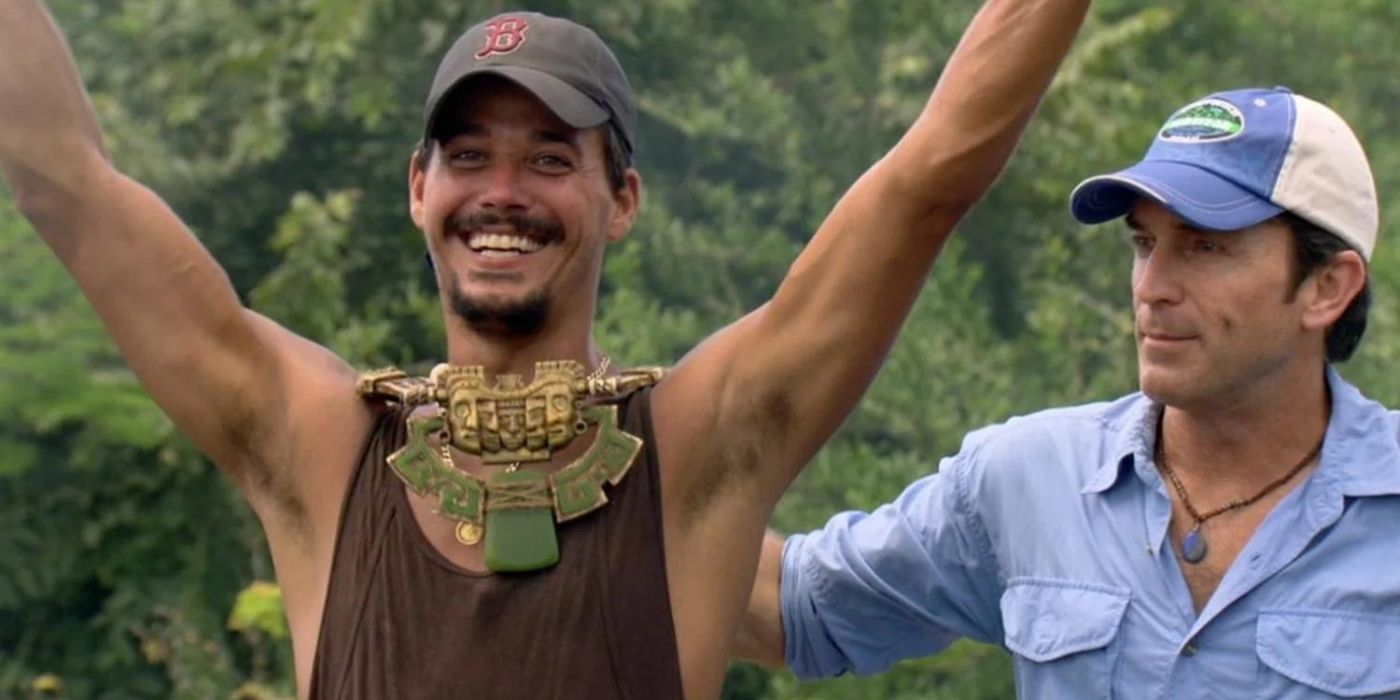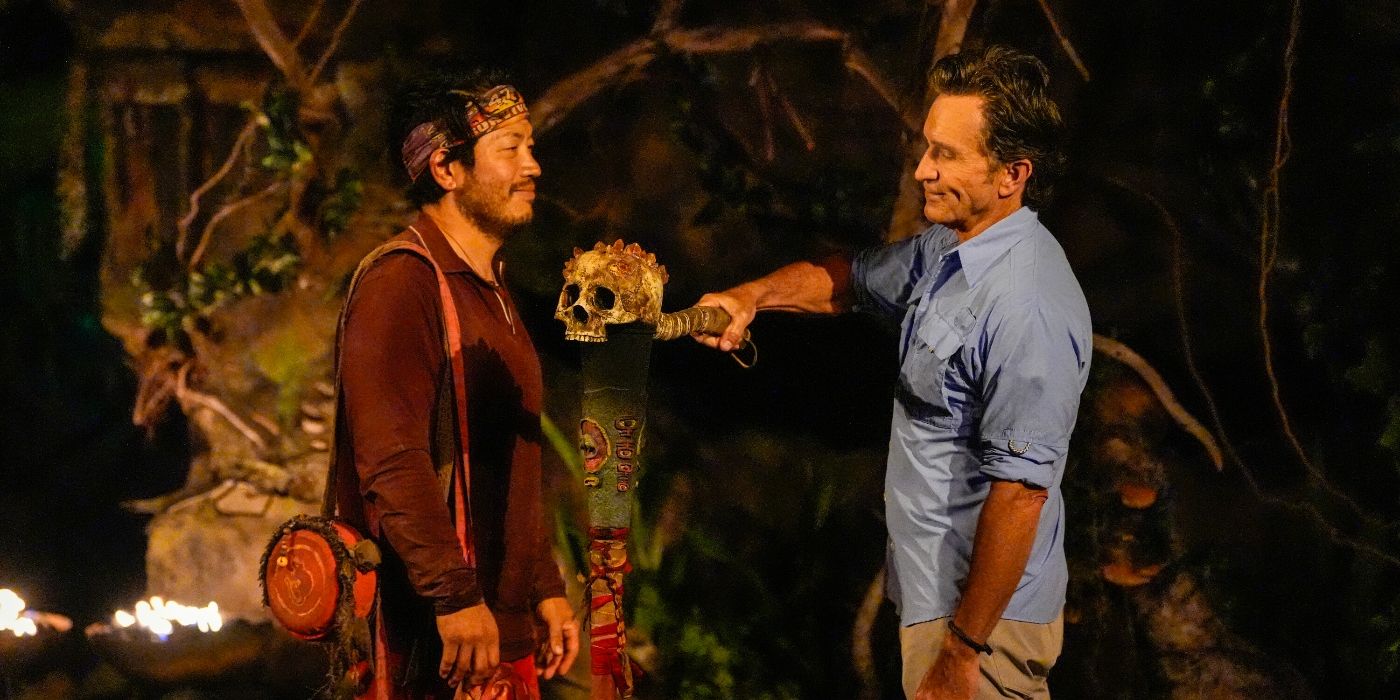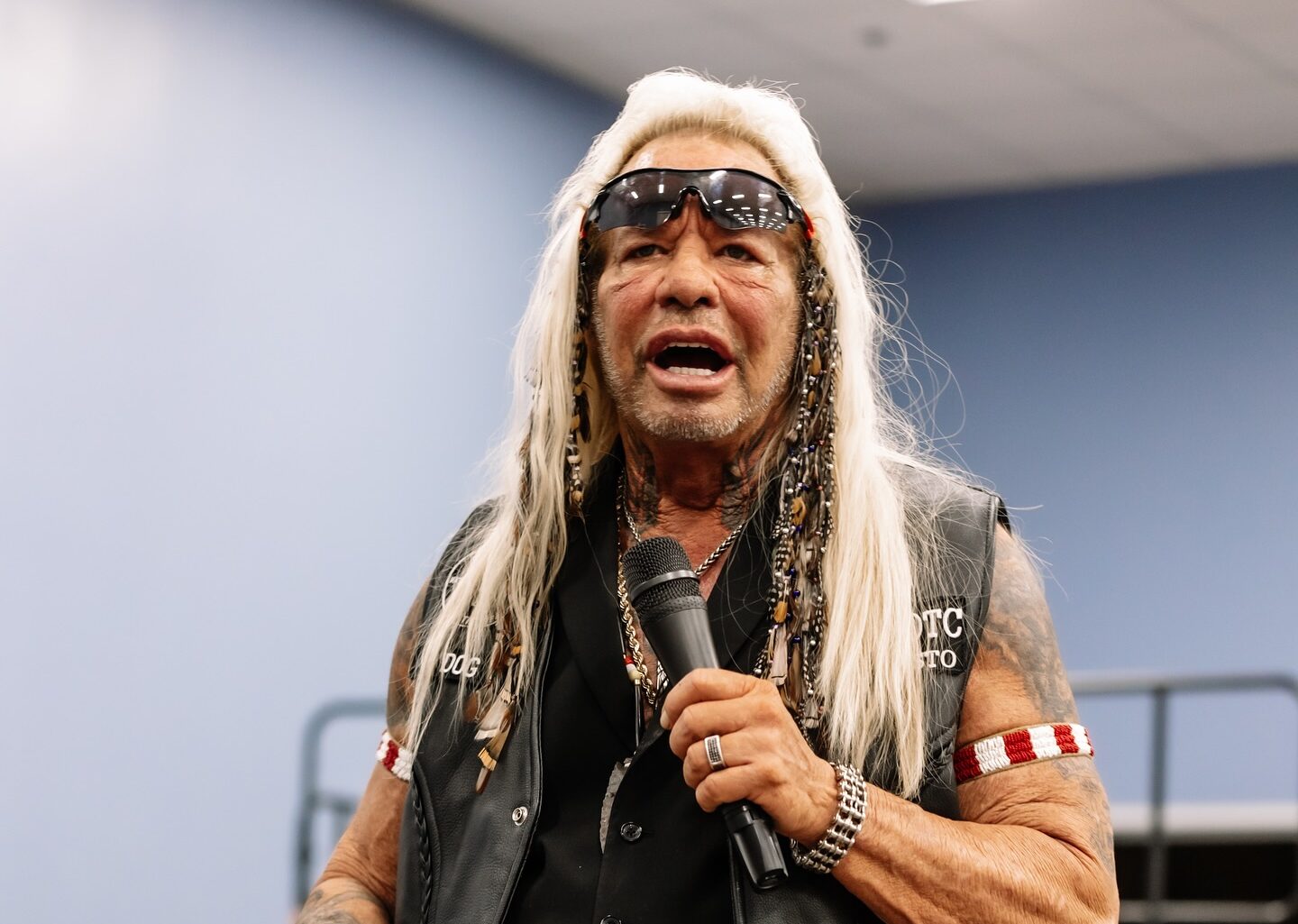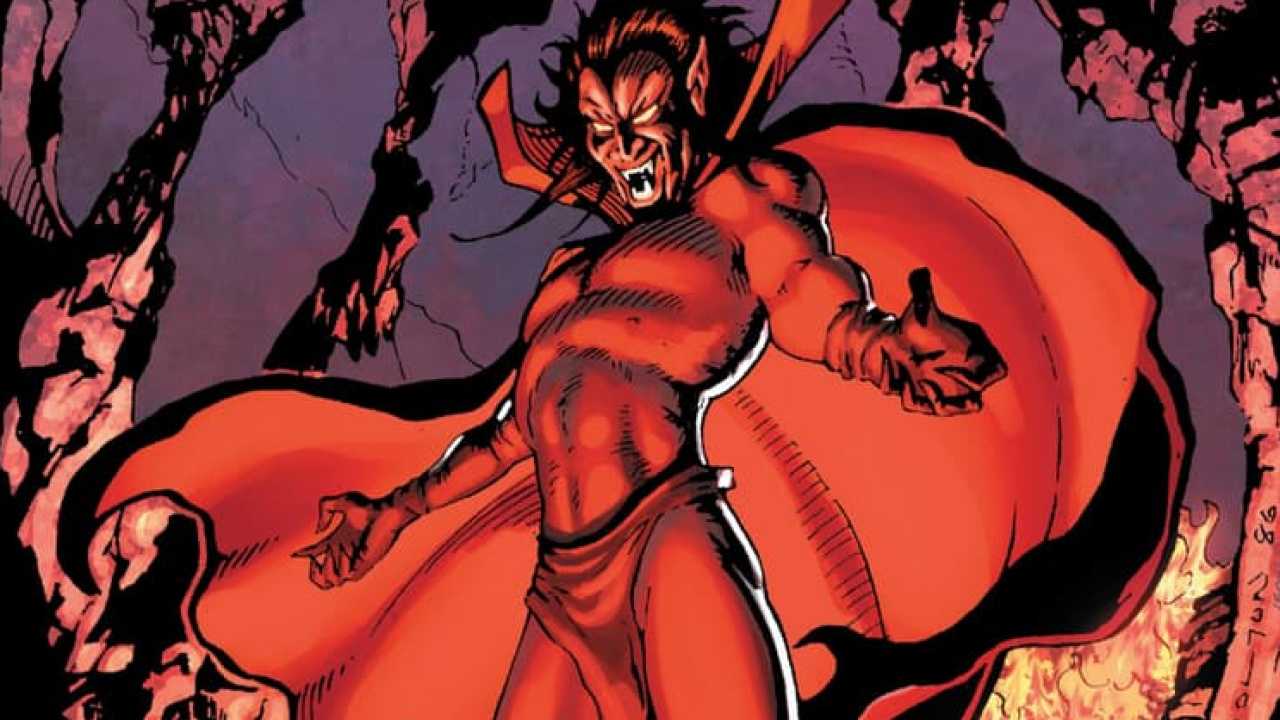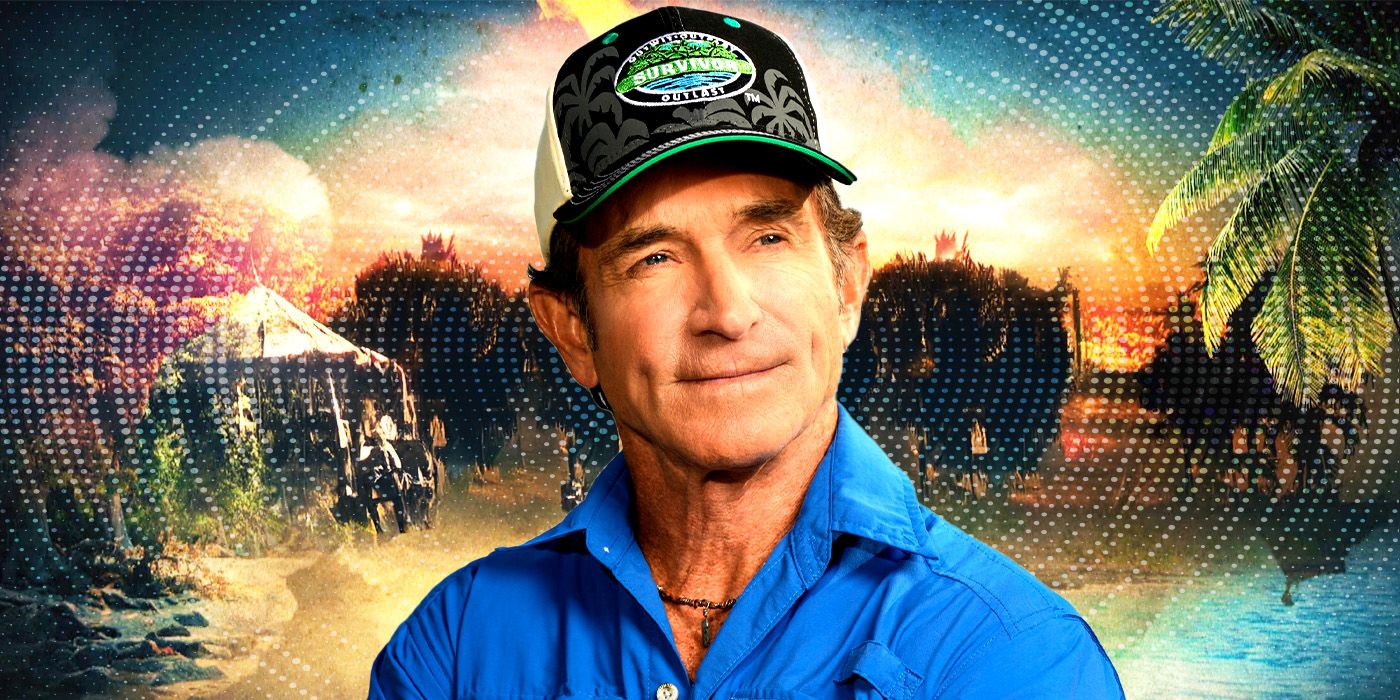
The longevity of the series can be credited to its innovations and how they influenced future programs. Whether it’s through format, strategy, or the creation of exceptional characters and stories, Survivor remains at the forefront of the genre. It truly changed the game. While there are a plethora of reasons why Survivor is the greatest social experiment, here are ten ways Survivor changed the game!
10
The Evolution of Strategy
When it comes to Survivor, a major draw for the show is how the game is played. Not just the win or get voted out, but also how the castaways maneuver through the game. The evolution of strategy throughout its twenty-five-year run has illuminated how the same basic game can still be refreshing as the game continues to be reinvented time and time again. As Survivor introduced new twists and elements, it forced castaways to explore new ways to adapt their game. What happens if you find a Hidden Immunity Idol? Do you tell anyone? Is throwing a challenge beneficial to your tribe? Who do you select as your number one ally, and when is the right time to eliminate them?
The exciting thing about Survivor is that there is no right strategy for everyone. Thanks to the over 700 contestants, they’ve showcased the profound diversity in how the game can be played through a plethora of strategies. If it wasn’t for Survivor, we would never have learned about two-time winner Sandra Diaz-Twine‘s game-changing “anybody but me” strategy. It’s a concept that other players on Survivor, as well as other contestants from other shows, have adapted. We could easily go through the best strategies and game moves of all time, but we simply don’t have enough time! Oh, and if you need more proof as to how the game has evolved, take a listen to “The Evolution of Strategy” by acclaimed journalist Josh Wigler and Survivor: All Stars’ Rob Cesternino.
9
The Usage of Tribes/Teams
Survivor, at the end of the day, is a solo venture. Only one person can win in the end. But to get to that Final Tribal Council, you must endure the team portion of the game. Depending on the season, Survivor begins the game with castaways being divided into a certain number of tribes.
In this portion of the game, you’re only as strong as your weakest link. Through social strategy, alliance-building, and challenge-winning, the tribes must work together as they live and survive at camp. If not they risk the chance of being voted out. The tribal team format has been adopted into a plethora of future reality competition shows, including The Apprentice and The Challenge. Of course, when Survivor moves into the merge portion of the game, that’s when the individual battle begins. Once again, Survivor‘s incredible format forces castaways to adapt to their strategy depending on the portion of the game. The tribal portion will dictate how the merge plays out.
8
Established the Idea of Themed Seasons
While the New Era of Survivor has sadly abandoned this concept, Survivor was the king of the themed seasons. Whether it was based on location, social or personality similarities, or a specific game element, Survivor established this concept in order to keep the game fresh and exciting. When it comes to the location-based seasons, Survivor has done a phenomenal job incorporating the culture and history into every element possible. Whether it’s the pirate influence of Survivor: Pearl Islands, the production design within Survivor: China, or the unique camps constructed for Survivor: Africa, the locations of each season became a character of its own.
When Survivor began to abandon the location as part of the season title, the themes began to move into elements built into the game. Whether it be Brains versus Brawns versus Beauty, David versus Goliath, Fans versus Favorites, or Blood versus Water, the season was dictated by how the castaways were split up. Furthermore, game elements like Redemption Island became the focal point of the season. With Survivor‘s success at utilizing themes, other shows adopted the same strategy. Each season of Big Brother was attached to some concept to shake the game up.
The Challenge incorporated a theme so often that fans became curious about what wild concept they might come up with next. Of course, when Survivor: All Stars became a massive success, every other long-running competition series ensured they had an All-Star season to celebrate their glory in a similar fashion. Survivor‘s ability to switch things up in the pre-New Era phase of the series gave Survivor something exciting to look forward to at the end of every Survivor finale. When that trailer dropped and the theme was announced, it gave fans something to look forward to.
7
Twists! Twists! And More Twists!
Nothing can kill a show better than monotony. Survivor knew that better than anyone. So, how do you shake up the game while maintaining the integrity of the show? Twists! Over the course of its run, Survivor has implemented a plethora of game-changing twists that have kept players on their toes. Think you know how to play Survivor? Just wait until Jeff Probst tosses a twist at you! Between game mechanics, food rations, and playing with clothes off their backs, Survivor‘s ability to alter the game through these devised innovations has kept Survivor alive. Hidden Immunity Idols. Tribe swaps. Purple rock. Final Four Fire-Making. The list goes on.
Certainly not every twist is beloved by the fans. Not every twist will work. And not every twist that Jeff keeps including is something that the fans want, but if it weren’t for the twists, Survivor would have become mundane. Due to Survivor‘s success, nearly every other reality show borrowed the twist concept to revitalize their games. If a player’s jaw drops to the floor on TV, chances are there’s at least one viewer at home doing the same.
6
Explored the Concept of a Social Experiment
In case you didn’t know, Survivor is, at its heart, a social experiment. When Survivor began, it shipped off sixteen strangers from all walks of life to Borneo to play a brand-new game for a million dollars. They were tasked to form a society where they must work together in order to survive. What resulted was a television phenomenon that had no signs of slowing down. Each new season invites a different conglomeration of strangers together to play the same basic game, and yet, every time, it results in a different outcome. Survivor may have physical, mental, and strategic elements that are essential to making it to the end, but the reality is, in order to win at Final Tribal Council, you must convince a jury of your peers to award you the grand prize.
Beyond that, the social interactions and personal stories have made Survivor must-see TV. Especially in the New Era of Survivor, character arcs have had a stunning spotlight shined on them. By focusing on the individuals beyond the game, it allows for visibility and representation to take form. The Survivor concept has been implemented into nearly every competition show. Big Brother is basically Survivor in a house. The Traitors is basically Survivor in a castle. The Circle is basically Survivor via a social media app. You get the idea.
5
Inspired Other Reality TV Competition Formats
The premise of Survivor is to be the last remaining contestant and earn the million-dollar prize. To get to the end, you must vote out your fellow castaways. Welcome to the premiere reality television game show mechanic. Beyond competition shows, even talent competitions, like American Idol and RuPaul’s Drag Race, have a vote-out element that helps reduce the number of contestants week after week.
Following the season’s premiere, every single episode follows the same format: post-Tribal Council aftermath, island life, a challenge or two, pre-Tribal Council scramble, Tribal Council, and an elimination. Essentially, every episode is the same. And it’s what many other shows have used for continuity purposes. While some streamers have opted to change up the format and extend episodes into the next with a “to be continued,” Survivor‘s influence remains.
4
Creating Reality Stars with Longevity
When reality television began, the intrigue centered on watching real people embark on incredible adventures out of their comfort zone. During that first season of Survivor, not a single one of those sixteen castaways stepped foot on the beach thinking they would become a household name. Little did they know, they became overnight celebrities. If you hear the name Richard Hatch, you instantly know who he is and what he’s famous for.
Since that first season, the show has made stars, either in their own right, like Elisabeth Hasselbeck of Survivor: The Australian Outback, or career reality stars like Boston Rob Mariano. It’s safe to say that other reality stars from other programs saw the potential in trying their hand at the genre and the life it could bring. For many, reality stars are “bigger” than Hollywood stars. It’s the element of feeling similar, seeing themselves in that person. Survivor has become a launchpad for reality careers. Individuals like Cirie Fields, Parvati Shallow, and Tony Vlachos have maintained a life in the spotlight because of the show. When you think of reality stars, it all circle’s back to this show.
3
The Introduction of the Host’s Signature Exit Line
To be an iconic reality show, the host needs a signature catchphrase. Especially an exit line. That quote they say when a player is eliminated. As Jeff Probst has previously shared, he was inspired by Regis Philbin and his line, “Final answer?” from Who Wants To Be a Millionaire? While spit-balling with producer Mark Burnett, they stumbled upon “The tribe has spoken.”
It has become perhaps the most iconic exit line of all exit lines. Without “The tribe has spoken,” we would never have “Sashay away” on RuPaul’s Drag Race, or “You’re fired” on The Apprentice, or “You are the weakest link, goodbye” on The Weakest Link, or “You are evicted from the Big Brother House” on Big Brother. The list goes on and on. It’s safe to say if we made a list of those iconic lines, Survivor would stand proudly at the top.
2
The Creation of Alliances
When you watch any reality competition series, you watch the social bonds that are created to help players get to the top. We call them alliances. While it may be hard to officially pinpoint the originator of the concept, many fans point back to Richard Hatch of Survivor: Borneo as the founder. A little history. Realizing that the only way to secure safety was to ensure you were insulated by a tight group of players or allies.
Compiling a group made up of himself, Rudy Boesch, Kelly Wiglesworth, and Sue Hawk, they are credited as the first official Survivor alliance. This Tagi Four successfully managed to make their way to the final four, where they then battled it out for the title of Soul Survivor. Without Richard Hatch’s brilliant plan, the landscape of reality television strategy might look a bit different. Certainly, someone would have created the concept at another juncture, but doing it right off the bat proved just how influential the game is on the genre. There’s not a team or solo game out there that doesn’t rely on alliances. Thanks, Survivor!
1
Put the Reality TV Genre on the Map
When it comes to longevity in reality television, very few series can claim they’ve been on as long as Survivor. Airing twice a year, Survivor has been the beacon of the genre. Without the success of that first season, the reality television boom might never have occurred. Survivor: Borneo defied the odds because of the groundbreaking moments it created. One might think that an adventure guide would be the winner of a game called Survivor, but the moment when Jeff Probst revealed that Richard Hatch, the unlikely victor, was the first winner of the show, it proved that anyone can win.
It doesn’t matter who you are, where you’re from, what you do, anyone can be a reality television champion. Survivor created the idea of heroes and villains. Perhaps we thank Sue Hawk and her infamous snakes vs rats speech for that. If you take any of the above and pick out a singular moment from Survivor, you can pinpoint how it influenced another moment on another show. The success of Survivor allowed Big Brother to take off that same summer. Then came The Amazing Race. CBS had the big three, making every network try to capture lightning in a bottle. Survivor put the genre on the map, and it has no plans of slowing down.
Discover more from imd369
Subscribe to get the latest posts sent to your email.
